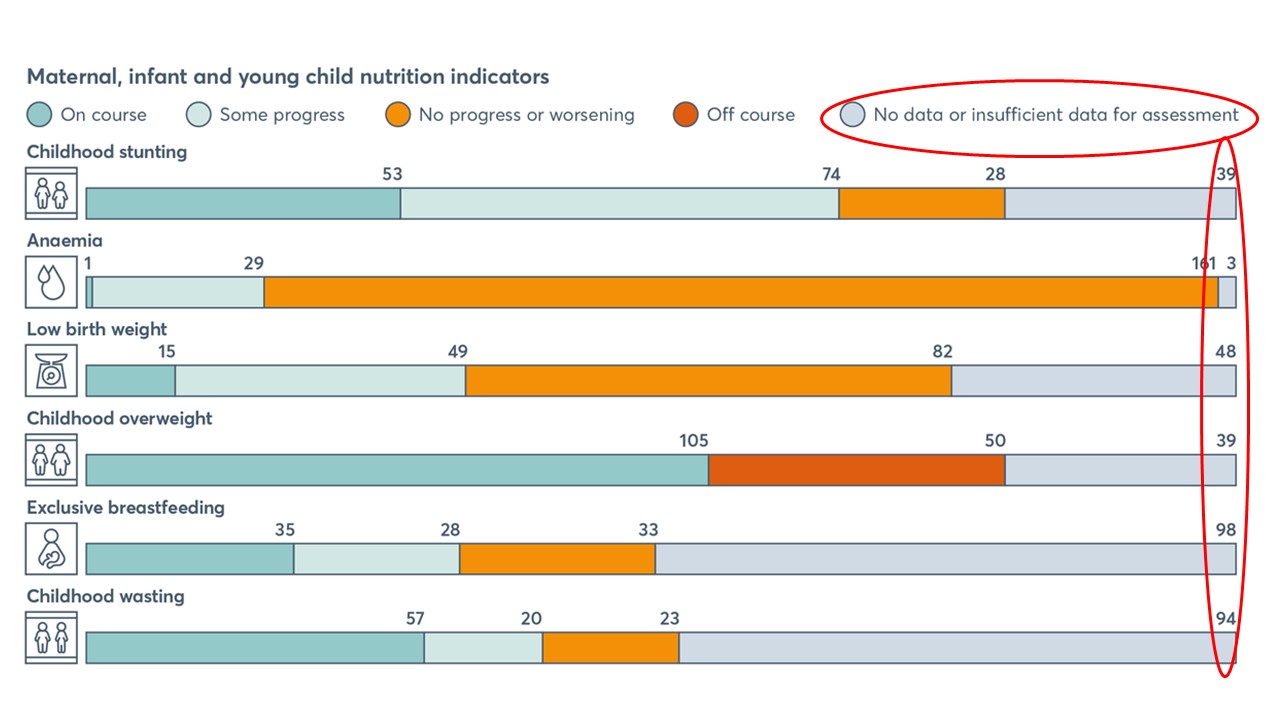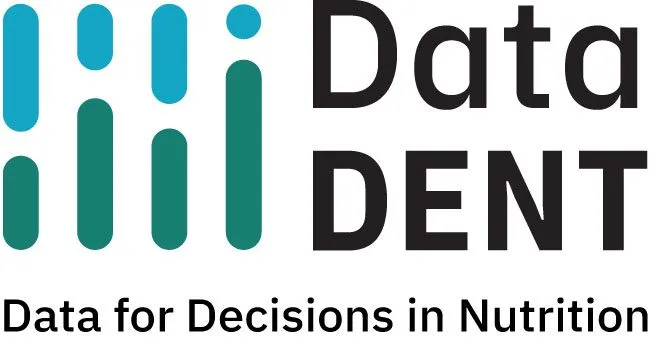The 2021 Global Nutrition Report (GNR) was released in late November as part of the leadup to this week’s Nutrition for Growth event hosted by the Government of Japan. The report’s headlines were not exactly a cause for celebration. The world remains off-course to meet five of the six World Health Assembly maternal, infant, and young child nutrition (MIYCN) targets and all the diet-related noncommunicable disease (NCD) voluntary targets. However, from a data availability perspective, there is some good news. Compared to 2020, the number of countries with sufficient data to track progress increased 16-86% across all MIYCN targets except low birth weight.

Figure 1: Few countries worldwide are on course to meet the global maternal, infant and young child nutrition targets by 2025 (Adapted from GNR, 2021)
Figure 1, adapted from the 2021 GNR, shows the number of countries with no or insufficient data by indicator. In the 2020 GNR, 118 countries had insufficient data on stunting, seven on anemia, 48 on low birth weight, 122 on childhood overweight, 123 on exclusive breastfeeding and 115 on childhood wasting.
Filling nutrition data gaps requires increased investment across the nutrition data value chain. However, the data costs are often overlooked or underestimated. As we have presented before, in 2019 only 33 of 58 SUN countries had costed plans with sections on data and monitoring and evaluation (M&E). Donor funding for nutrition data between 2017-2019 fell short of a 5% benchmark. N4G 2021 is landmark opportunity for the nutrition community to commit to strengthening nutrition data value chains.
On 17 November 2021, DataDENT and other members of the Nutrition Data Partners Group—UNICEF, WHO, European Commission, Scaling Up Nutrition (SUN), National Information Platforms for Nutrition (NIPN), Countdown to 2030, and the Bill & Melinda Gates Foundation—hosted an official N4G side event, “Improving Nutrition Through Accountability and Data Systems: SMART Nutrition for Growth Data Commitments”. The event featured examples of successful data investments in India, Malawi, Peru, Bangladesh, Niger, Guatemala, Nigeria, Indonesia, Uganda, Yemen, and Côte d’Ivoire as well as new data tools from UNICEF and WHO. Panelists from Yemen, Uganda, and USAID, shared their data-centered N4G 2021 commitments. The event was designed to inspire other N4G participants to make specific commitments to nutrition data.
Watch it here:
The Data for Nutrition Community of Practice supported event logistics. Translations in English, French, and Spanish on the Data for Nutrition YouTube channel.
